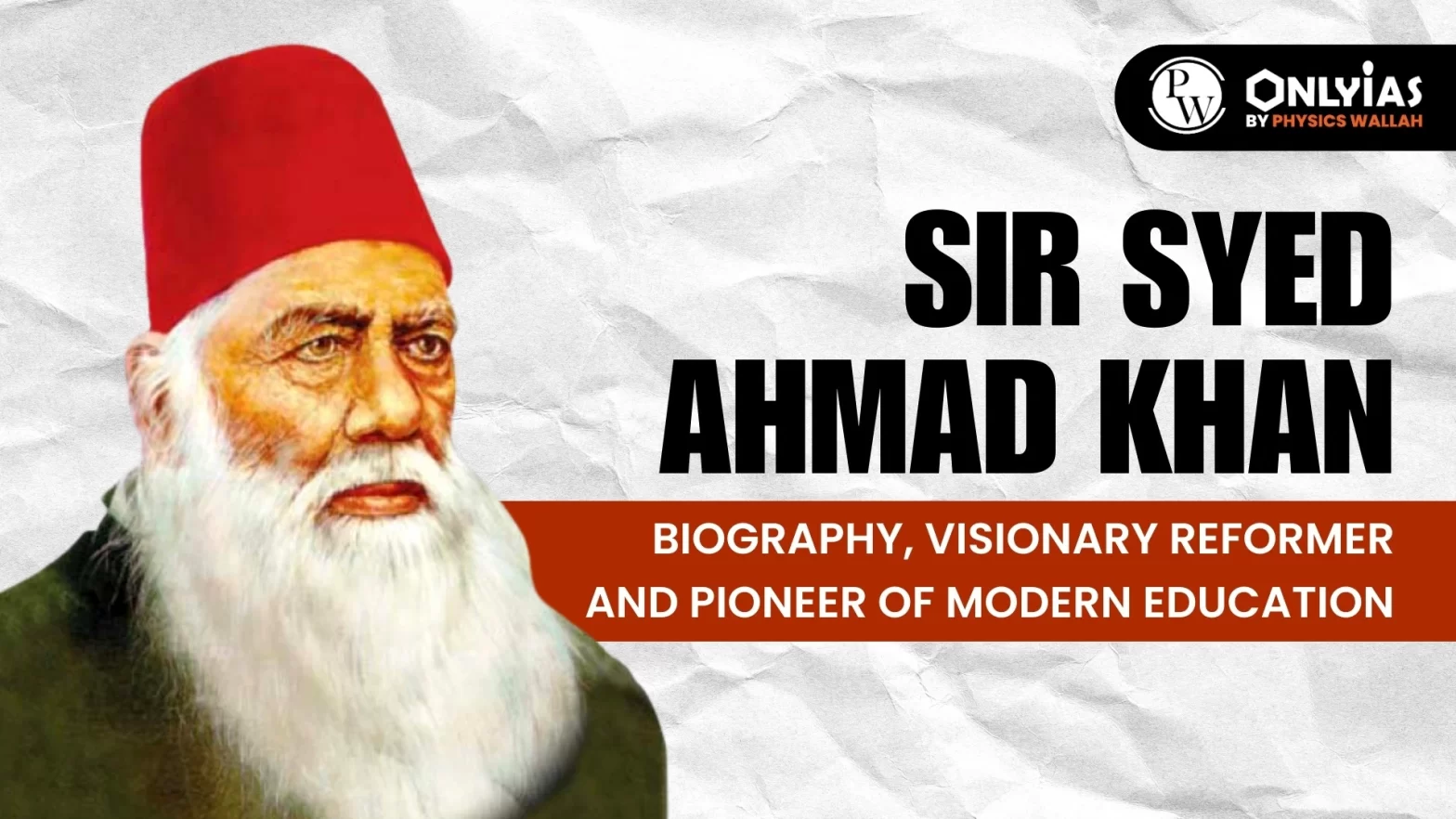Discovering the life and legacy of Sir Syed Ahmad Khan, a 19th-century Muslim reformer and education pioneer in British India. Exploring his vision for social reform, his contributions to modern education, and his efforts to bridge tradition and modernity.

Sir Syed Ahmad Khan, born in Delhi in 1817, came from a respected Muslim family.
He worked in the British government’s judicial service and was a noticeable Muslim reformer and thinker of the 19th century. After retiring in 1876, he joined the Imperial Legislative Council in 1878 and was later knighted in 1888 for his dedication.
The British initially viewed Muslims as the primary instigators of the 1857 revolt.
However, they later realized that Muslims could be useful in countering nationalist movements by granting them concessions.
Also Check: SSC GD Notification 2024
Sir Syed Ahmad Khan passed away in Aligarh on March 27, 1898, at the age of 80. His biography, “Hayat-e-Javed,” was published three years after he died. Shafey Kidwai, a famous scholar and critic, wrote a book about Sir Syed Ahmad Khan called “Sir Syed Ahmad Khan: Reason, Religion, and Nation.” He was the most influential Muslim leader in India, and his beliefs influenced the thinking of many Muslims.
| Must Read | |
| NCERT Notes For UPSC | UPSC Daily Current Affairs |
| UPSC Blogs | UPSC Daily Editorials |
| Daily Current Affairs Quiz | Daily Main Answer Writing |
| UPSC Mains Previous Year Papers | UPSC Test Series 2024 |
<div class="new-fform">
</div>